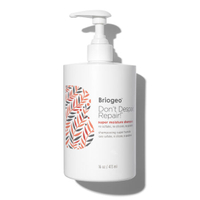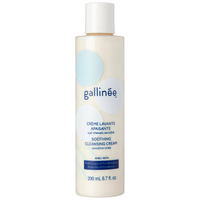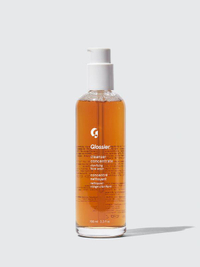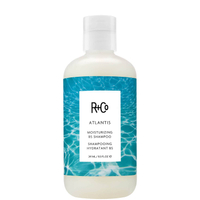Is it time to banish sulfates from your beauty regimen? The pros and cons of this controversial ingredient
Sulfates are one of the most common ingredients in cosmetics. Learn how they work—and whether or not you should go sulfate-free
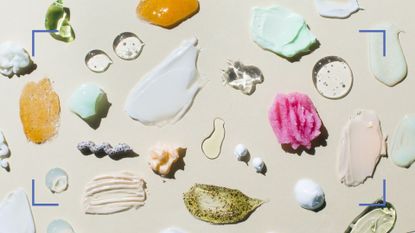

Sulfates are one of the most prevalent (and currently, controversial) ingredients available. They are particularly ubiquitous in cosmetics. Sulfates are found in most beauty products, everything from soap and shampoos to bath bombs and toothpaste. So why is this common household ingredient causing a stir?
Over the last 15 years or so, interest in sulfate-free products has grown. We have consulted experts to find out the benefits and side effects of sulfates, and how they could impact the effectiveness of your skincare routine and best beauty products. In our guide, you will learn about their use, and know what to look for when buying products containing them as an active ingredient. You may also discover that your skin type or lifestyle choices mean that going sulfate-free would be a good option for you.
What are sulfates?
"Sulfates are a group of widely used detergents, typically found in cleansers, toothpastes, and shampoos. They act as surfactants, which means they reduce the surface tension between ingredients; their cleansing properties can be attributed to the fact that they attract both water and oil," explains Dr. Lauren Hamilton, cosmetic doctor and founder of skin clinic, Victor & Garth.
Popular examples include sodium lauryl sulfate (SLS) and the more gentle version, sodium laureth sulfate (SLES). These two ingredients are derived from fossil fuels and plant oils, including coconut oil and palm oil.
Where you will find sulfates
If you check the labels of your most common household cleaning products (think laundry and dish detergents), you’ll likely find one or both of these popular ingredients listed. But you'll also find them in many beauty products too, such as:
- Liquid soap and body wash
- Soap
- Shampoos
- Bath bombs
- Toothpaste
The amount of sulfates in a product depends on type and manufacturer but as a general rule you can expect the potency to be in the region of:
- 1%—Skin cleansers
- 1-2%—Toothpaste
- 10-25%—Shampoos
Are sulfates bad for you?
‘Sulfate-free’ has become an increasingly popular label that brands have been keen to put on their products and as a result, consumers have looked out for them. But are they really that bad for you?
Sign up for the woman&home newsletter
Sign up to our free daily email for the latest royal and entertainment news, interesting opinion, expert advice on styling and beauty trends, and no-nonsense guides to the health and wellness questions you want answered.
Receiving a bad rap in the early 90s, it was alleged that sulfates caused cancer—a claim that has been disproven repeatedly since. Due to this negative association, however, many have since questioned whether the ingredient is even necessary.
It's worth adding that beauty products containing sulfates are regulated and considered safe, but it's a good idea to make sure the product is thoroughly rinsed off after use. If you're using laundry or dish detergents with SLS, concentrations may be significantly higher. Therefore, when you use these cleaning products, it is good to use gloves or rinse your hands frequently and make sure the area is properly ventilated.
"While they can be effective at removing surface dirt, oil, and makeup, they can cause side effects," warns Dr. Hamilton. Here are four of the most common concerns:
Concern #1: Potency
Followers of the curly girl method, and clean beauty fans, argue that sulfates are overkill, and you don't need to wash your hair and body with the same detergent and vigor that you wash your clothes and kitchenware with. They claim that this strips the natural oils which help maintain a healthy skin barrier and shiny hair. However, as with most beauty claims, you can find reputable experts making a case for both sides. For many people, it's a case of trial and error and working out what your body responds best to.
Concern #2: Irritation
"Sulfates are known irritants," says Dr. Hamilton. They have been found to cause itchiness, redness, and dry skin, especially with long-term exposure. "The best approach would be to avoid this ingredient if you have sensitive or sensitized skin as your skin barrier function will be weakened," she adds.
One study, however, from the International Journal of Toxicology found that SLS is safe if applied and removed from the face and body as you would with shampoos and soaps. It also notes that sulfates can be formulated in varying strengths and a lower concentration—particularly of SLES compounds—may be more gentle on your skin.
Concern #3: Animal cruelty
Sulfate products for humans are commonly tested on animals, prompting some people to deem sulfates as unethical. Many companies have stopped using this ingredient in an effort to become cruelty-free.
Concern #4: Environmental impact
The other concern regarding the use of sulfates relates to the impact on our planet. "Certain sulfates included in your favorite products, like the ones derived from palm oil, are not environmentally friendly," explains Dr. Kemi Fab. As you may know, the Amazon rainforest is being destroyed at incredible speeds to make room for palm tree plantations, and this ingredient is one of the few reasons these plantations are in such high demand.
"What's more, the bi-products from sulfates that are washed down the drain and enter our waterways can be harmful to many forms of marine wildlife," adds Dr. Fab. According to the California Air Resources Board: "Sulfate particles are usually acidic, and when dissolved in water they form sulfuric acid. Deposition of this sulfuric acid is usually through acid rain or snow, which damages a variety of ecosystems and materials."
Are there any benefits of using sulfates?
The primary use for SLS and SLES in beauty products is to create lather, offering a sensation of feeling clean, thoroughly rinsed, and refreshed. Without sulfates, cleaning products wouldn't expand and sop up dirt and grime in the same way to create that finished sheen. The chemical has been used in beauty products for a very long time and is accepted as a safe ingredient for cosmetic use in most countries. Their benefits include:
- Skincare benefits: Sulfates are surfactants, meaning they help attract and mix oil and water, making them easy to wash away from your skin. Some of the best skincare products use sulfates in their blends to give that extra-clean feeling when rinsed off.
- Hair benefits: Sulfates in shampoos remove dirt, oil, and styling product build-up from the hair, scalp, and skin.
- Oral care benefits: Sulfates are also commonly used in products like toothpaste, acting as degreasers and foamers to aid while brushing.
What do sulfates do to your hair?
Often featured in the best shampoos and conditioners on the market, sulfates do have their benefits when it comes to hair care. They're very effective cleaners which means that if you are using them you will probably find yourself wondering how often should you wash hair less frequently than others.
They're so effective because they are essentially detergents. Sulfates remove dirt and product build-up from the hair, leaving it super clean and fresh. The downside is that they're perhaps too good at cleansing some types of hair, and can strip away natural oils and moisture. They have the potential to leave strands and scalps dry and irritated. While this may not be such an issue for those with oily hair types, it can exacerbate dry or damaged hair, and sulfates can be too harsh for curly hair.
Should I use Sulfate-free shampoo, body wash, and face cleanser?
The decision to go sulfate-free should be influenced by your concerns. If you’re suffering skin irritation and have identified sulfates as the catalyst, it's time to switch.
"If you find that your skin is easily sensitized or that your hair can’t retain moisture, you may want to consider switching to ‘sulfate-free’ labels to see how your skin and hair adjusts," advises Dr. Fab. "Alternatively, you can look out for ingredients such as hyaluronic acid and ceramides to help counteract the potentially drying effects of sulfates."
But remember, how sulfate affects your skin may vary depending on the strength, product, manufacturer, and brand. Just because one product doesn't agree with you, it doesn't mean they all don't.
For anyone who wants to support sustainable practices (i.e. products not made from fossil fuels or palm oil) and go cruelty-free, opting for sulfate-free products is a good step in the right direction.
If you're not experiencing irritation and sustainability and cruelty-free shopping isn't your first priority, then you should consider omitting sulfates if you don't enjoy the squeaky-clean feeling that it creates. Due to the way sulfates produce lather, and the connection we make between froth and cleanliness, they are a standard part of many beauty and cleaning products. If you crave that fresh feeling then sulfate-based formulas can remain your common go-to.
How to check if a product contains sulfates
If you want to avoid using products, beauty or household, that contain sulfates—make sure you check the label. As well as SLS and SLES, there are other hidden ingredients that are very close to sulfates but can still be found in a 'sulfate-free' product. Ingredients to look out for include:
- Sodium Lauryl Sulfate (SLS)
- Sodium Laureth Sulfate (SLES)
- Sodium Lauryl Sulfoacetate
- Sodium Lauroyl Isoethionate
- Sodium Lauroyl Taurate
- Sodium Cocoyl Isoethionate
- Sodium Lauroyl Methyl Isoethionate
- Sodium Lauroyl Sarcosinate
- Disodium Laureth Sulfosuccinate
Recommended sulfate-free beauty products
Briogeo Don't Despair, Repair! Super Moisture Shampoo | RRP: $36/£30
Ideal for dry, damaged hair this gentle shampoo is packed with vitamins and rich algae extract to hydrate hair without stripping essential oils or color. It’s the perfect pick for anyone who doesn’t want to dry hair out or overload it with moisture.
Glossier Cleanser Concentrate | RRP: $20
This new cleanser packs a powerful punch with five gentle exfoliators (Grape Ferment, Grape Extract, Lactic Acid, and Malic Acid) to do away with dulling dead skin cells while cleaning skin. Glossier has opted for Amino Acid Surfactants as a plant-derived alternative to sulfates.
A lifelong creative writer and beautyphile, Eunice Lucero-Lee graduated from De La Salle University in 2002 and was hired a year later to front all beauty coverage for Pink Magazine. A beauty, astrology, and pop culture obsessive and insider for over 18 years, Eunice is an internationally published editor (and now certified astrologer) whose work has been featured in publications such as Cosmopolitan, Esquire, and The Numinous, among many others.
